13 Best CRM for Small Business (2024)
[Definitive Guide]
![13 Best CRM for Small Business ([currentyear])<br> [Definitive Guide] 1 Best CRM For Small Business](https://www.insiderbusinessschool.com/wp-content/uploads/2020/11/13-best-crm-fi.jpg)
Share this article:
DISCLAIMER – Insider Business School is a leading player in the world of today’s digital entrepreneur – we’ll introduce you to go-getters and great thinkers. We sometimes use affiliate links and may receive a small commission on your purchase. Learn more…
We analyzed 47 Best CRM for Small Business on the market today to cut through the hype and find out which are the Best Small Business CRM [currentyeat] – NO FLUFF
We shortlisted them to the 13 Small Business CRM 2024
Specifically, we looked at
So, if you’re in the market for the best CRM solution for Small Business make sure you read this Definitive Guide first…
Now it’s time to share what we found.
Let’s get started…
Table of Contents
Best 13 CRM’s for Small Businesses
Best Overall CRM for Small Business
#1 – Ontraport
![13 Best CRM for Small Business ([currentyear])<br> [Definitive Guide] 18 Editor Choice Badge Siver](https://www.insiderbusinessschool.com/wp-content/uploads/2020/11/Editor-Choice-Badge-Siver.png)
Bottom Line : Ontraport’s features are superlative amongst CRMs, and they’re everything you need to increase your sales today
Pros
Cons
If you’re a business coach, consultant, agency or looking for the best Sales and Marketing tool on the planet – look no further. This all-in-one marketing and sales software will help you gain clients – and keep them for longer.
Go High Level sets your team and clients up for success by keeping all necessary tools like landing pages, sales funnels, and custom menus for marketing and sales in one organized place.
It, therefore, helps you deliver on your promises effectively and quickly.
To scale your business…
… let High Level connect you with features and tools that help you capture leads through surveys, calendars, forms, an inbound phone system, outbound calls, and so much more.
High Level’s in-built management feature finds your leads, keeps track of them, and shows you the seamless nurturing process.
The CRM automatically nurturems your leads via SMS, voicemail, emails, review widgets, drag and drop surveys and forms, and the list goes on.
It leverages Artificial Intelligence to manage your conversations on all devices.
It doesn’t stop there!
High Level tracks analytics, collects payments, and schedules appointments for further transactions.
And the support team is available any time of the day, regardless of your location.
It’s not all roses – it does have its limitations – this system was designed by a marketing agency to convert more clients, and it does this better than anything else in the marketplace.
That said, its CRM functionality is limited. So if you’re looking for a software more specifically around recording and storing customer data, and business workflows, this is not for you as the CRM system is quite basic and does have its limitations.
Note: It’s good enough for most businesses.
Best Value CRM for Small Businesses
#2 – Hubspot
![13 Best CRM for Small Business ([currentyear])<br> [Definitive Guide] 20 Best Value Badge silver](https://www.insiderbusinessschool.com/wp-content/uploads/2020/11/Best-Value-Badge-silver.png)
Bottom Line : The CRM that grows your business without a charge because it’s completely free.
Pros
Cons
There’s no doubt Ontraport’s designers had you – the end-user in mind – I absolutely LOVE this tool.
It’s really nice to do business with someone you like, and know that they’ve got your back. We – this is what you have with Ontraport. Steve Ray, the owner is so passionate, behind Ontraport and its clients = you couldn’t wish to meet a nicer guy.
In fact…
Hubspot CRM has no setup fees, and you won’t need to rob a bank to use the platform.
And guess what?
They offer top drawer quality.
Small business owners love this CRM thanks to the integrated features.
You can enjoy market automation, direct-mail printing, an innovative business automation site, and an impressive email deliverability rate.
But that’s not all…
Ontraport’s task management tool and customizable dashboard allow you to choose exactly who sees what – of the sales cycle.
And you can follow up on instructions easily since users can edit records from their phones.
You can also fully automate your marketing and sales effort, saving you time for other things.
This robust marketing system doesn’t only target your customers for a seamless experience.
It makes it easy for your small team to manage leads and process payments so that NOTHING is left to chance.
Related: Ontraport CRM Review
Our Top Pick CRM
#3 – GoHighLevel CRM
![13 Best CRM for Small Business ([currentyear])<br> [Definitive Guide] 22 Top Pick badge silver](https://www.insiderbusinessschool.com/wp-content/uploads/2020/11/Top-Pick-badge-silver.png)
Bottom Line : Best for Agencies, Consultants, and Freelancers, this is an all-in-one platform that delivers all the functionality your team needs to upscale your small business.
Pros
Cons
Active Campaign software has advanced marketing features like lead scoring, email scheduling, and SMS marketing.
And its automated features help you track your emails, so you know when a contact opens them.
They also reveal your customers’ interaction with content like webinars and emails.
That way, you know the connections to focus on.
And you don’t need technical expertise to set up the CRM since their checklist helps you import contacts, add integrations, and create campaigns.
You can also connect to work platforms like Slack, which notifies you of contact updates.
There’s more – the drag-and-drop email feature helps you control content display and recipient details.
The Active Campaign team offers training over a free phone call.
So you can easily and quickly learn to navigate through your CRM.
Their cybersecurity team eliminates any impending attacks on your small business’s infrastructure, so you don’t have to worry about your data protection.
BEST CRM For Scaling Your Business
#4 – Close.io
![13 Best CRM for Small Business ([currentyear])<br> [Definitive Guide] 24 13 Best CRM 04 2](https://www.insiderbusinessschool.com/wp-content/uploads/2021/03/13-Best-CRM-04-2.jpg)
Bottom Line : Best for small businesses just starting out!
Pros
Cons
Looking for CRM to ensure you close more deals?
Here it is!
Features like SMS, predictive dialing, sales pipeline view, and email marketing tools help you communicate with team members and customers the right way.
Without delay, you know what interests your customers, and you can communicate in a way that shows you care to get the job done!
And guess what?
Even though everything you need is on the Close CRM platform, the price to set it up surprised us – it’s incredibly fair.
Without any degree of hassle, your small business will begin to attain even your loftiest sales goals.
That’s thanks to features like cold calling and email automation, which will mean you reach everyone that wants to do business with you.
Besides…
… you can integrate to over 50 applications like Zapier and Wufoo to convert your leads to revenue.
Best CRM for Sales & Fulfilment
#5 – Pipedrive
![13 Best CRM for Small Business ([currentyear])<br> [Definitive Guide] 25 13 Best CRM 05 1](https://www.insiderbusinessschool.com/wp-content/uploads/2021/03/13-Best-CRM-05-1.jpg)
Bottom Line : Pipedrive helps your business make more sales without a hassle
Pros
Cons
If you’re looking to organize your sales process without stress, Pipedrive is for you.
This CRM allows you to create sales pipelines and adapt their stages to your preferred context.
It also removes time-consuming disorganized administration tasks for you.
So your team members can focus on their specific roles.
There’s more…
…Pipedrive gives you access to sophisticated automated email synchronization, whether it’s Gmail or QQ Mail.
You can also connect to other software and add-ons like Zapier, which syncs data found on different web apps.
This CRM’s statistics tool helps you categorize sale stages.
It features sales analysis, email integration, and task reminders. And its data-syncing feature and straightforward interface make it easy to convert potential deals to sales by tracking pending activities.
Last but not least:
Pipedrive is also user-friendly, and you can access the CRM at your convenience, via an app or the web.
Best CRM for Their Tech Support
#6 – Less Annoying CRM
![13 Best CRM for Small Business ([currentyear])<br> [Definitive Guide] 26 13 Best CRM 06 1](https://www.insiderbusinessschool.com/wp-content/uploads/2021/03/13-Best-CRM-06-1.jpg)
Bottom Line : The app tracks your leads, closes more deals, and means you can sleep at night knowing nothing will be missed
Pros
Cons
Many small businesses prefer Less Annoying because it saves them time and money.
Features such as lead tracking, pipeline management, built-in calendar, and follow-up notifications ensure that nothing slips through the cracks.
Less Annoying CRM manages your database and allows you to customize the interface to track your sales processes.
There’s even more…
…you can track and categorize leads and filter searches of contacts or companies.
And marketing via email is as easy as 1,2,3.
You can send mass emails from your preferred email provider by uploading your contact spreadsheet or connecting it to your Google account.
The mobile-friendly CRM software allows you to communicate with a coach via phone or email.
They also offer small businesses a 30-day free trial and will be happy to walk you through the setup.
And they’re so confident you’re going to love it, you could cancel your subscription anytime.
The thing is, they know you won’t.
Best UX CRM
#7 – Fresh Sales
![13 Best CRM for Small Business ([currentyear])<br> [Definitive Guide] 27 13 Best CRM 07](https://www.insiderbusinessschool.com/wp-content/uploads/2021/03/13-Best-CRM-07.jpg)
Bottom Line : Fresh Sales is user friendly and sales enhancing
Pros
Cons
Freshsales CRM is one of the best pieces of CRM software you’ll find for 2024.
While some software companies boast of products with the best and latest innovations that are hard to learn, Freshsales is far from it.
Its tools monitor your deals, remove all manual entries, and run sales email campaigns, all of which enhance your sales.
Features like IP whitelisting, audit logs, auto-profiles, lead assignments, automated workflow processes, and multiple sales pipelines all enhance your customer relationship management.
And guess what?
It is super user friendly.
The lead capture feature extracts leads from your emails, sticking them straight in your CRM.
That way, you can detect likely conversations and huge deals with no effort whatsoever.
Also, the in-built voice phone automatically dials, records calls, and routes calls when necessary.
So you can easily navigate through this most agile CRM.
The Freshsales CRM made our list of the best CRM software for small businesses because it’s high-performing and easy to use.
Meaning you and your small business can focus on producing sales from the leads, not routine admin.
Best Free CRM
#8 – Active Campaign
Bottom Line : Provides more features at a fraction of the cost of other CRMs.
Pros
Cons
HubSpot is the best free CRM for marketing automation and organizing sales teams.
The software helps you build databases, assign tasks, and log emails at no charge.
So if you’re on a tight budget and seek business growth, sign in to their system, which supports as many users as you wish.
But that’s not all there is to this customer relationship management software!
You can track customer interactions and integrate effortlessly into tools like Google Sheets, Slack, Office 365, and G-suite.
And the marketing hub helps you measure SEO-based ROI and optimize your landing pages.
You’ll get its core functionalities free of charge!
Its visual dashboard provides a view of your sales funnel, allowing you to schedule events and track performance.
As your customer base begins to grow, you’ll want to have a good system for managing your relationship with them. This customer relationship management CRM lets you view your company’s sales processes through your dashboard.
And the paid add-ons give you AI assistance and more in-depth insights into sales prospects.
Best CRM for Reporting
#9 – Zoho
![13 Best CRM for Small Business ([currentyear])<br> [Definitive Guide] 29 13 Best CRM 09](https://www.insiderbusinessschool.com/wp-content/uploads/2021/03/13-Best-CRM-09.jpg)
Bottom Line : Zoho attracts and retains customers by helping you deliver on your promise
Pros
Cons
Zoho is great for lead management, social media integration, customer segmentation, sales automation, and much more.
And suppose you want features such as project management and customer support unavailable within the platform – you can always integrate them with the system.
This CRM collects data and then locates leads on log calls and maps.
It records customer visits and voice notes, which analyze your interactions and sales in real-time.
The payment per user or month won’t break the bank.
And you can monitor each team member’s progress from the central dashboard.
Yes, there’s more…
… the CRM embraces digitalization as it integrates with Social media platforms like Facebook, Twitter, and Google+ for improved engagement with your leads.
And its standard plan enables KPI tracking and sales forecasting.
Small businesses find Zoho CRM appealing thanks to its business management solutions and integrated applications.
And it allows up to 10 users on its free edition.
Best CRM for Big Budgets
#10 – SalesForce
![13 Best CRM for Small Business ([currentyear])<br> [Definitive Guide] 30 13 Best CRM 10](https://www.insiderbusinessschool.com/wp-content/uploads/2021/03/13-Best-CRM-10.jpg)
Bottom Line : A leading CRM connecting employees and customers innovatively
Pros
Cons
If you have no issue spending decent money on your business, SalesForce is the CRM for you.
This CRM has all you need to thrive and grow as a small business.
You’ll enjoy features like:
- B2B market automation
- Campaign management
- Third-party integration
- Lead scoring
You can customize your sales process, manage your contacts, and track customers from anywhere via the mobile app.
Synchronize all tasks, contacts, emails, and calendars automatically, too.
Another thing…
… its tools encourage team collaboration, and the third-party integrations help you create an excellent business workflow.
And, no need to fear an attack on your database – their security covers that.
Instead, your sales team is on their toes, managing their tasks effectively.
Amongst other CRMs in the digital market, Salesforce raises the bar by servicing your company after it’s helped you grow in size.
All you need is a cash injection to start.
Best CRM for Marketing
#11 – Keap
![13 Best CRM for Small Business ([currentyear])<br> [Definitive Guide] 31 13 Best CRM 11](https://www.insiderbusinessschool.com/wp-content/uploads/2021/03/13-Best-CRM-11.jpg)
Bottom Line : All-in-one CRM with collaborative features for tracking customer interaction
Pros
Cons
When your business starts growing and needs more employees, the ability to acquire and track leads, or invoice clients, it’s time to use Keap.
The CRM helps you build an extensive lead database.
It does this by allowing you to download information from spreadsheets and business cards or an earlier installed CRM.
And then there’s more…
… Keap greets each lead with an email and sends automated texts, emails, and reminders to your loyal customers.
It stores all necessary processes and interactions neatly in one place.
And it updates them so you can easily track leads and schedule events.
That way, you get to focus on marketing your service and gain more clients and sales as a result.
So if your focus is on marketing, Keap is the right CRM for you.
Check out our three Award-Winning CRM Systems from Insider Business School Today!
Best CRM for Larger SMBs
#12 – Insightly
![13 Best CRM for Small Business ([currentyear])<br> [Definitive Guide] 32 13 Best CRM 12](https://www.insiderbusinessschool.com/wp-content/uploads/2021/03/13-Best-CRM-12.jpg)
Bottom Line : Insightly keeps businesses organized and highly productive
Pros
Cons
Did you know?
Many businesses prefer the Insightly platform because it provides specific CRM solutions to small businesses and large companies.
It services your needs, ranging from pipeline management to contact and task management, Activity set for the sales rep, and tracking of deliverables.
But it doesn’t stop there.
Insightly increases your productivity by monitoring your customer interactions.
It works with Google Apps, MailChimp, Gmail, and other apps to bring you more sales.
And it gives you access to live updates wherever you are, through mobile platforms like Kindle, iOS, and Android.
You can choose any of its available five plans designed to fit your business needs.
And you can start with their free plan.
Insightly helps you get better at planning, strategic marketing, and carrying out tasks for the best results.
And it doesn’t matter that you’re leaving the small business category.
Insightly scales with you!
Best CRM for Gmail and GSuite
#13 – Copper
![13 Best CRM for Small Business ([currentyear])<br> [Definitive Guide] 33 13 Best CRM 13](https://www.insiderbusinessschool.com/wp-content/uploads/2021/03/13-Best-CRM-13.jpg)
Bottom Line : The CRM that has your deals, contacts, and files fully organized
Pros
Cons
Ever wanted a CRM that embraces Gmail and your current GSuite?
Congrats!
You’ve just found the one!
The cloud-hosted software fortifies everything ‘marketing and sales’.
The intuitive interface will help you improve customer interactions and also rewards your marketing strategies.
Copper is not only flexible; it automates your activities, shows you how customers respond to your prompts, and directs you to the next steps you need to take.
All these improve your sales.
And that’s without a challenging learning curve.
The interface mimics your G Suite, and it readily integrates with Gmail, which makes work easier.
Copper quickly accesses your contacts by voice and emails, and that will enhance your email marketing results.
And it reveals pipeline progression, which keeps you on your toes and drives you to strike more deals.
Why Trust Us?
We want you to choose the best CRM; hence our team has spent many hours analyzing, testing, and comparing dozens of the best CRMs.
We did our initial market research and noted how popular the CRMs were.
We consulted Finances Online and carefully perused the user reviews.
We used statistical data to conclude and fizzled out products with insufficient data.
But that’s not all!
We examined the CRMs that our team has now used daily and drew conclusions from their experiences and results.
Our preferred system is Ontraport, and the one our team uses daily naturally emerged as our Editor’s Choice.

Buyers Guide:
How to Choose the Best CRM for Small Businesses
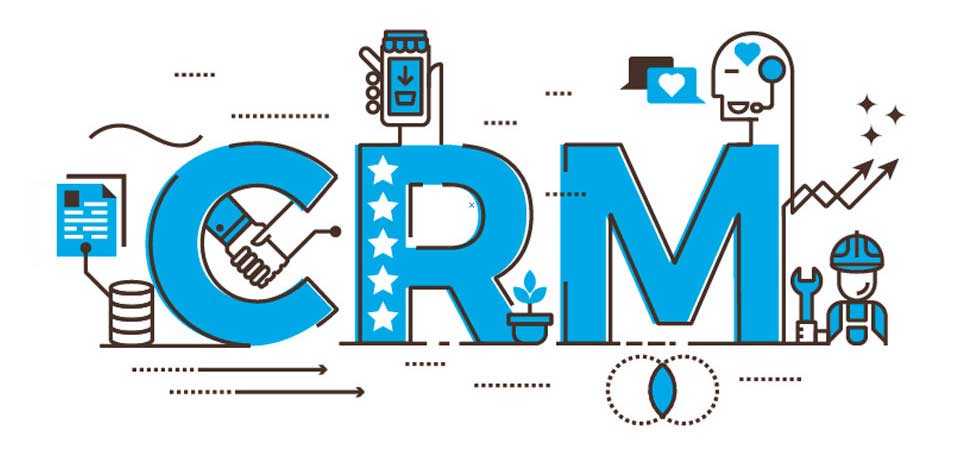
What Are the Different Types of CRM?
You’ll find many different CRMs available for your small businesses.
These CRMs are categorized based on their roles, specifications, and dimensions of customer relationship management. And the three groups are:
Analytical CRM
This CRM type analyzes data using highly effective techniques, e.g., pattern recognition, data mining, and correlation.
These techniques help the software decide the next steps to take and how to draft reports. Then, the CRM makes the best decisions for your business.
Operational CRM
A.k.a Basic CRM, the Operational CRM integrates business, sales, and marketing, which are essential.
Then, it checks the status of each and develops a strategy for their management.
Its subcategories include sales force automation, marketing automation, and service automation.
On the other hand-
Collaborative CRM
These unite outside users like vendors.
They keep everyone updated with valuable customer data.
This collaboration is essential to collate information that may be useful for prospecting and handling innovation, such as promotional offers.
Features to Look Out for
CRMs come with a wide array of features to grow your small business.
So it’s essential to know the ones to look out for when making a decision on choosing the best CRMs for small business.
Here’s a few of them:
Lead and Contact Management
Contact management is the feature for organizing contacts into categories.
If you’re on a low budget, it’ll be just the ticket as a primary feature. It allows the formation of email campaigns and presents an organized customer database.
While the feature may stand alone in some CRMs, it combines with other components in others.
And the lead management feature tracks your clients and customer interactions.
Sales Automation or Marketing
Most small businesses purchase CRMs solely for sales automation.
That’s simply because it makes the sales process more accessible – from prospecting – to customer evaluations, campaigns, and order completion.
The feature tracks your leads, sales and monitors web visits.
Many times, sales automation has web forms that extract leads and collect feedback in real-time.
Sales Tracking
This feature either comes as a stand-alone or is added to sales automation.
It analyzes sales for you, telling you how many sales you’ve won, when, and to whom.
The best CRMs provide a dashboard to create sales reports and show your sales performance at a glance.
You should find basic report templates, too.
Communication
Often integrated with other features, many CRMs provide multiple channels of communication.
A good relationship management CRM software includes emailing, calls, instant messaging, and forums.
This array of communication channels means you can reach diverse contacts in different ways.
As a result, you’re up to date with their needs and can service their needs quickly.
Integrations
While some CRMs allow third-party integrations, a few do not.
You can either enjoy the built-in apps or opt for a third-party app.
Integrating with popular tools like G Suite, Microsoft Office, and Outlook, WordPress, Slack, and Mailchimp cuts quite some time off your work-life.
Support
Small businesses sometimes find it challenging to set up a CRM, and it can be ultra frustrating.
But there is a solution, folks…
… some CRM organizations will train you and provide access to materials or a user community.
That way, you can solve any issue with their 24/7 customer service.
Finding help from other software platforms can be difficult due to, e.g., connectivity issues and limited customer service staff.
Products and Specifications: The 13 Best CRM Systems
We’ve shown you the features to look out for when choosing from the 13 best CRMs for small businesses.
It’s time to explain the specifications you kept seeing earlier on.
Let’s start here.
Landing page
Since digitalization makes it faster to act, it’s essential to prompt customers and web visitors to take action while they’re on your webpage.
The landing page stands alone on your site and markets your product or service. It’s where people end up after clicking a link or an ad they find on Social media.
So you have to find a way to get them to act – your call to action (CTA) – when they land on your page.
That way, your marketing campaigns increase your conversion rate.
Reports and Dashboards
Reporting is a popular CRM feature, which helps users view data and statistics.
Different users engage with live data via various portals, thereby improving communication and overall task management.
The dashboards’ reports drive decision-making and invite you to make choices based on apparent customer interactions.
You can now clearly see customer acquisition, retention, and satisfaction rate.
Mobile Support
Think about this…
It makes more sense to be able to access the CRM you paid for on the go.
Top CRMs want you to have the ability to communicate anytime.
That’s why they include mobile access in their software.
This addition enables constant data synchronization and communication 24/7. You’re productive, even out of the office or town.
Marketing CRM
Another specification that makes a CRM system better than average is the marketing spec.
Most CRMs offer this, which enhances marketing efficiency.
Marketing automation enables actions such as batch emailing and target-based marketing.
So if you generally deal with numerous contacts at various levels, this feature will save you plenty of time.
It also allows you to set, deliver, and track marketing campaigns within your interface.
CRM systems provide tools that allow users to track marketing campaign performance.
Now, there’s still more to choosing the best CRM for your business.
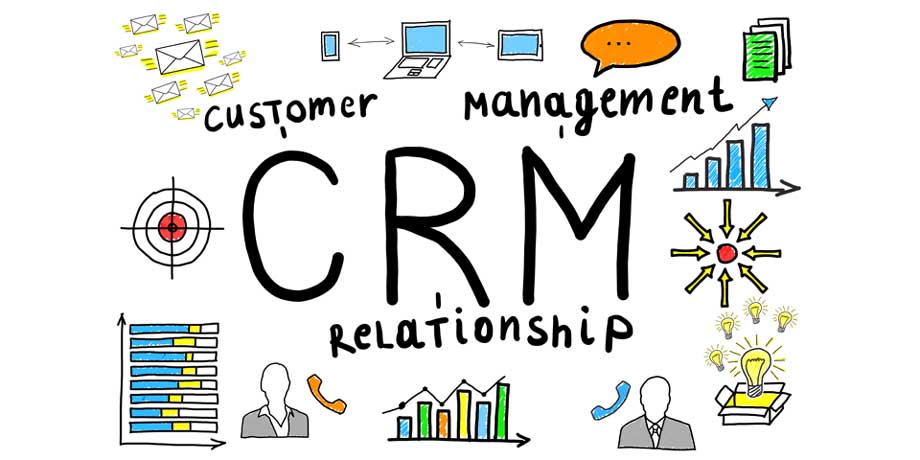
Things to Consider
Keep in mind that Wellies can come in different heights.
Let’s take a quick look at th
These Are Things to Consider
We’ve searched out the best CRMs for any small business.
It’s now time for you to consider their features and specifications side by side to find the best solution for your needs.
Whether you run a retail business, a sales-based company, or any other small business, you must consider these factors.
Then, note your business’ unique requirements, so you’re clear before you buy.
Value and Features
Wait, do this..
Ask yourself why you need a CRM.
Small businesses need CRMs for sales, marketing, or customer service, and sometimes all of these at once.
So it’s important to consider why you need a CRM.
For instance, if you want to offer the best customer service, get yourself a CRM platform with a friendly customer service plan and features.
Cost of Use
As a small business, you must check your budget and how much it will cost to use a particular CRM.
Using CRM goes beyond subscriptions or licensing fees.
That’s why you should ask questions related to costs around implementations, product pricing tiers, customizations, data migration, third-party apps, and how much you have to pay for users each month.
Integration Capacity
It’s possible you already have systems for project management, accounting, email marketing, and other requirements.
So if you’re bringing in a CRM to make things easier for your business, be sure the CRM accommodates app integrations or allows add-ons. That way, you can avoid repeating data entry.
One more thing!
Customer Support
Introducing a CRM into your workplace is sometimes challenging, especially when your team members find it hard to set up and are resistant to change.
Some CRMs offer training and even provide access to videos, online articles, and in-person training.
And whenever there’s an issue with your customer relationship management, they’ll help you via chats, email, or phone support.
To appreciate and enjoy full use of your CRM, make sure you purchase one that your people can handle. Don’t add to their workflow – CRMs were not built for that.
em.
Knee-high – These give maximum protection. Putting them on and taking off can be a problem. So they’re not usually recommended for casual use.
Full height – These are some of the best Wellies – they rise to the top of your calf. They’re most popular for gardening or walking and will keep you dry.
Half-height – These boots are ideal for those with thick calves as they sit below the calf muscle. They give a good combo of style and protection.
Ankle height – These Wellington boots are a recent development. While they are easy to put on and comfortable, they aren’t suited for rough use.
When you buy a full-height Wellington boot, make sure you get your calf measurement right. The other important thing to consider is the right ankle fit. These two measurements will determine your comfort inside the boot.
Now, getting a high pair of Wellies on and off can be a tough task. So – consider choosing a zipped boot for easy on and off. Another option is to buy a boot removal tool as an accessory.
Jargon buster
When it comes to customer relationship management, some words are popular. And you’ve sure seen them a few times in this guide.
So you can understand them better, and see how the best CRMs help you with them, here’s an explanation:
Leads
Now, what’s a lead?
A lead is a prospect to sell to. And it can come as a company or individual’s contact to the top of your business’ sales funnel. It helps you become aware of when you’re about to make a sale and what customers’ pain points are.
CRM helps you collate data from sources such as conferences, web visits, and business cards either manually or digitally.
And lead management helps you track activities till leads become sales.
Sales Process
This is the systematic conversion of leads to sales. It shows the steps your sales team needs to take to close deals and build relationships that’ll bring your business sales.
Having a defined process helps the CRM build these steps within the software.
Since CRM quickly spots weak areas in the sales process, you can change your approach to selling.
Sales Forecast
An estimation can be made based on market trends, sales history, lead counts, spending patterns, and other factors that usually influence buyer behavior.
The sales reporting and forecast gives you an idea of what to expect in sales, using the data in your software. That way, you can make the necessary decisions and interact with customers better.
Here’s another one:
Sales Pipeline
This describes the proportion of leads that attain different sales levels at any time. It can be per month or even per week.
This track lets you know the demand for a specific product or service.
And by using any of these best CRMs, you can tailor your sales pipeline to find you the results you’re after.
Contact Management
This specification handles customer information in real-time. Their details and interactions with your company are easy to access.
Contact management categorizes your contacts for better-targeted operations.
And this makes your customers feel important and heightens their satisfaction.
Insider Business School Top Tip(s)
Now, you’re wondering, ‘I have 13 best CRMs before me. They all look great; what do I do? Where do I go from here?’
Before anything else…
- Go for the easy to use Since you’re getting the CRM to do all the work for you, it doesn’t make sense to spend months figuring how the thing works.
- Look out for a system that you can easily integrate with the software your business already uses.
- Since you’re on the move, you should work with a CRM provider you can access from anywhere around the world.
- Opt for a CRM you can afford to maintain. You don’t want to keep changing software – it can get messy.
So, we’ve managed a confusing situation by giving you our top tips on choosing the best CRM for your unique small business.
It’s time for you to make that decision from the well researched 13 Best CRMs we’ve given you.
Do you still have questions? Let’s answer them in the next section.
Frequently Asked Questions (FAQ’s)
Q What is the best CRM?
A- The best CRM is Ontraport. No wonder small businesses have flocked to Ontraport in recent years. The platform is unified to manage your sales, information, and marketing tasks without stress. It’s features like eCommerce, reporting, email marketing, and automation have made it our Editor’s choice.
Q- What is the Best Value CRM?
A- If you’re looking for value at a reduced price, your best bet is the Close CRM. Close caters to every small business. It doesn’t matter whether you’re a one-person team or overseeing a major sales unit’s activities. You can choose from the starter, basic, professional, or business plans that come with a trial of up to two weeks at no cost or risk!
Q- Why Is Using a CRM Important?
A- Every business needs a data-driven platform. You need to save your team members’ time and energy so they can concentrate on strategic performance. And using a top-flight CRM allows everyone access to vital information about sales, customers, and trends, which guide your decision making at every level.
Q- Is Using a CRM Worth the Cost?
A- You need a CRM to organize your business and increase your efficiency. Managing your customer relationship updates your data, influencing appropriate next steps. You know which area of your company’s marketing or sales process requires attention. So generally, it’s worth the cost. And if you can’t afford something expensive yet, a cheaper or free CRM would do just right!

Round-Up
We know that choosing the best CRM for your business can be stressful.
So we’ve tested the popular CRM options in the market. We’ve analyzed each customer relationship management system, noting how navigable they are or whether they’re fit for marketing, reporting, and software.
That’s because we know you’re still growing, and you need to get the absolute best value for money.
Each CRM comes with its strengths and some weaknesses, but our research has led us to these results:
Ontraport earned our Editor’s Choice Award because its balanced features fit small businesses like a glove.
And right by it is the Close.io CRM, which came out as our Top Pick Choice – it sure is, with the excellent functions it brings to the table.
But could we have stopped there?
Not at all!
Voted for Best Value is Active Campaign because its tools and features far outweigh the money you’re dropping to use it.
Just in case you’re wondering how we came about these choices, dive right in!
Our Analysis, Comparisons & Test Results
Value for Money
You want a CRM to gain more sales.
So it only makes sense when you get the results you need from the features you’re investing in.
Now see how the above CRMs fare in that area.
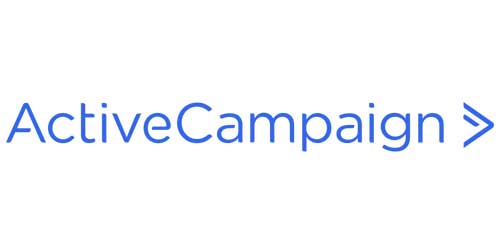
Value for Your Money Rating
Ease of Use
You’re getting CRM software to reduce your workload and market sensibly.
You’re not meant to spend your energy and time trying to figure out how to operate one.
This next list will tell you which CRM you’ll navigate easily.
Here goes…
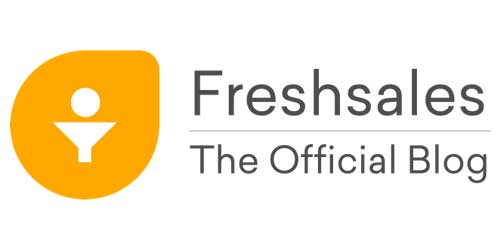
Ease of Use Rating
Sales
We’ve done our research, so it’s time to show how great these CRMs are at converting your leads to sales – and – how good they are at working effectively to increase your sales.
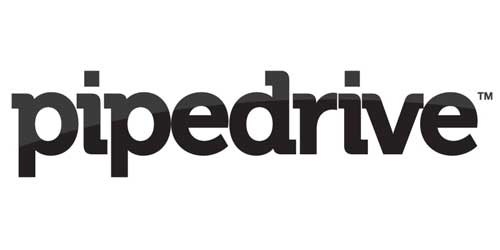
Sales Rating
Marketing
Running a small business can sometimes be trying.
CRMs market your products and services innovatively.
And that’s what attracts new customers and keeps existing ones happy.
So you need to know how these CRMs are at marketing…
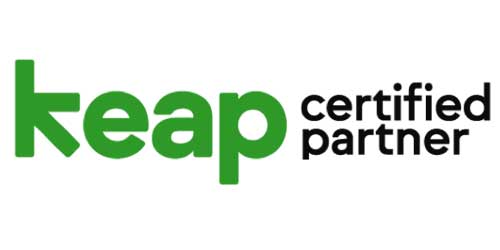
Marketing Rating
Reporting
CRMs are there to keep you on track of how things are going with your marketing and sales processes.
They must do that quickly too, and in an organized fashion.
Look how well these CRMs show the status of your customer relationships with your business.
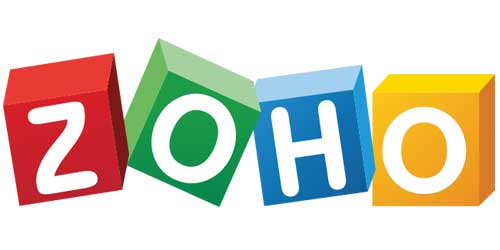
Reporting Rating
Customer Support
It can be annoying when no one offers you help or answers your questions when you need them.
And since you’ll need support setting up or dealing with issues with your CRM software, you need to be sure that your provider will be available.
This list shows the support level of the CRMs we’ve analyzed.
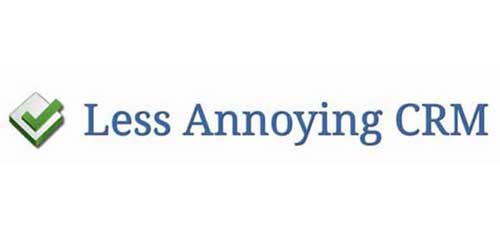
Customer Support Rating
Our Final Verdict: 13 Best CRMs for Small Businesses
Now here’s the result of our vigorous evaluations and analyses.
Don’t forget to note where our Editor’s Choice sits on the list.
Conclusion:
13 Best CRM for Small Businesses
By now, you’ll have realized that picking the best Wellies is a piece of cake with the right info at hand.
Now you’ve read through this comprehensive TopNotch review, you’ll be better equipped to make the best choice.
Honestly, our team left no stones unturned to deliver you a thorough review of the top Wellies on the market.
Your business needs customer relationship management to thrive and then to excel.
Period.
And while several CRM platforms are doing the basics, they also come to the table with different features and dimensions.
That’s why we went all out to see for ourselves.
We examined how each CRM operates and what it gives back.
We’ve compiled a list of the best CRMs you’ll find anywhere on the net today.
What’s next?
The ball is in your court now!
Set it rolling.
Choose the best CRM for your team today.
![Zoho One CRM Review [Definitive Guide] [currentyear] 34 Zoho One CRM Review [Definitive Guide] 2024](https://www.insiderbusinessschool.com/wp-content/uploads/2021/04/Zoho-FI-768x461.jpg)
![Active Campaign Review: </br> [Definitive Guide] [currentyear] 35 Active Campaign Review: [Definitive Guide] 2024](https://www.insiderbusinessschool.com/wp-content/uploads/2021/04/Active-Compaign-FI-768x461.jpg)
![Keap CRM Review [Definitive Guide] [currentyear] 36 Keap CRM Review [Definitive Guide] 2024](https://www.insiderbusinessschool.com/wp-content/uploads/2021/04/Keep-FI-768x461.jpg)
![Insightly CRM Review ([currentyear]) <br>[Definitive Guide] 37 Insightly CRM Review (2024) [Definitive Guide]](https://www.insiderbusinessschool.com/wp-content/uploads/2021/04/Insightly-FI-768x461.jpg)
![Ontraport CRM [Definitive Review] [currentyear] 38 Ontraport CRM [Definitive Review] 2024](https://www.insiderbusinessschool.com/wp-content/uploads/2020/12/Ontraport-FI-768x461.jpg)